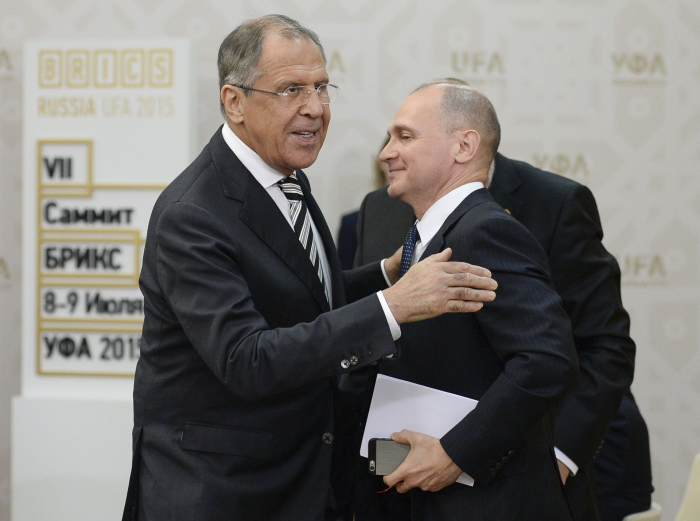Russian information warriors identified Germany as a particularly easy target for Moscow’s influence, U.S. law enforcement said.
The U.S. government on Wednesday indicted two Russian citizens and seized more than 30 internet domains related to a campaign to influence the American election.
But the trove of information filed in court by the FBI also revealed another bombshell: A Russian operation to manipulate German, French, Italian and U.K. politicians, businesspeople, journalists and other influencers.
The goal of the Kremlin’s campaign in Europe was to sow division, discredit America and undermine support for Ukraine, according to a host of Russian documents, memos and minutes from Russian psychological warfare meetings.
The documents were obtained by the FBI and filed in a court affidavit as part of Wednesday’s indictments. The 277-page dossier details Russian plans to win over Europeans' hearts and minds.
One memo from Russia’s “Social Design Agency” described a plan to target people via real posts and comments on social media to circumvent social media companies' bot filters.
The Social Design Agency acts under the orders of Russian President Vladimir Putin’s deputy chief of staff Sergey Kiriyenko, according to the FBI court affidavit.
The Russian document says the goal of the campaign is to “evoke in the audience rational (such as, 'really, why do WE need to help Ukraine?') and emotional (such as, 'Americans are such scumbags!') reactions.”
The psy-ops also relied on so-called doppelgänger domains to spread fake articles and content made to look like they came from Western media outlets.
The domains included fakes of Reuters, Der Spiegel, Bild, Le Monde, Le Parisien, Welt, FAZ, Süddeutsche Zeitung, Delfi and others, and were paid for with cryptocurrencies such as bitcoin, according to the FBI affidavit.
The Russian psy-ops team identified Germany as a particularly vulnerable target for Russian influence.
“The Germans are more dependent than the French,” reads one of the Russian documents, presumably referring to Germany’s economic dependence on Russian gas and exports.
“First and foremost, we need to discredit the USA, Great Britain and NATO, and secondly,” convince Germans to oppose the “inefficient politics of sanctions,” the FBI quoted an internal Russian note as saying.
Another Social Design Agency document outlines an operation called “International Conflict Incitement” targeting specifically France and Germany.
Its objective: “To escalate internal tensions ... in order to promote the interests of the Russian Federation,” as well as “to influence real-life conflicts and artificially create conflict situations” via fake articles, influencers, as well as targeted posts and comments on social media.
The Russian document added that the goal was to “destabilize the societal situation” in France and Germany by “spreading additional false narratives;” “fake videos, documents, and telephone conversation recordings;” “comments on social media;” and “fake and real quotes from influencers.”
Jakob Hanke Vela is Brussels Playbook Writer for POLITICO.
The views and opinions expressed in this article are those of the author and do not necessarily reflect the official policy or position of AzVision.az.
More about:
















































